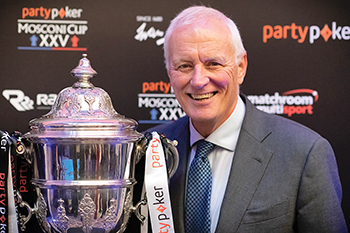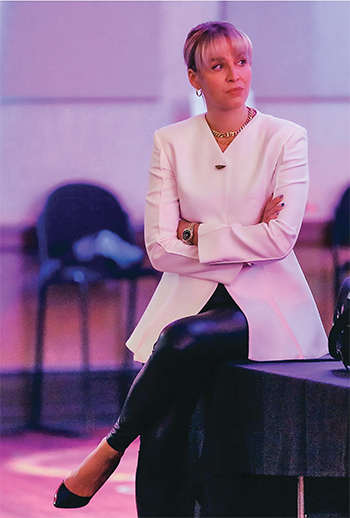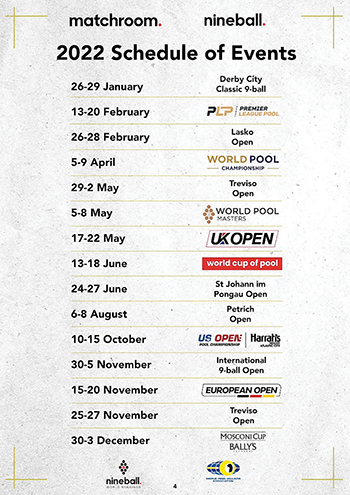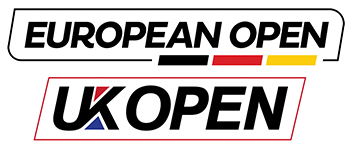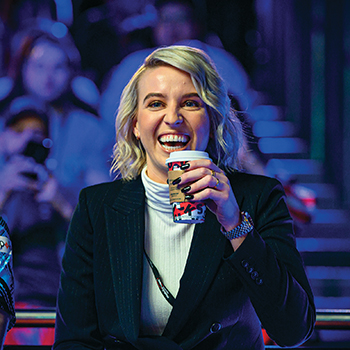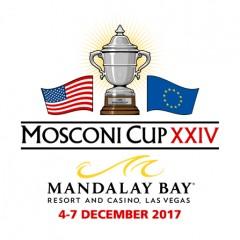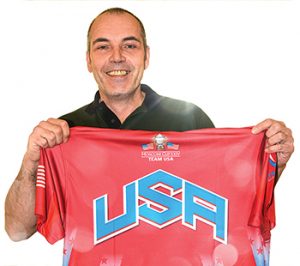A Cup Like No Other
The only thing certain about the 2020 Mosconi Cup is that nothing is certain. By Mike Panozzo
No matter how things shake out, 2020 promises to be a Mosconi Cup like no others.
Madness, partisanship and flag-waving figure to be replaced by bubbles, emoji cheers, elbow bumps and nose swabs, as the annual Europe vs USA slugfest reshapes itself in the wake of COVID-19’s seemingly endless assault on “normal.”
Just four weeks from the proposed start of the four-day team 9-ball event, only the lineups are set in stone, and even that could change at a moment’s notice.
Still to be determined are minor details, like, oh, the venue, live audience participation and which squad will be awarded a coveted second practice table.
The stubbornness of the global pandemic couldn’t have come at a worse time for pool in general and the Mosconi Cup in particular. Riding an unprecedented wave of popularity and success, the 26-year-old Matchroom Sport-promoted event was on pace to welcome 3,000 fans to each of the four sessions in 2020 and figured to continue its growth in television viewership.
Instead, Matchroom Multi Sport COO Emily Frazer and her crew are holed up in a virtual war room, planning for anything and everything that could alter the course of the event between now and its Dec. 1 start.
With sponsorship dollars trimmed and possibly no ticket revenue, Frazer recently acknowledged that the first order of business is finding a venue that could handle both a bubbled event and some live audience. The 2020 event is scheduled for London’s cavernous old Alexandre Palace, but the likelihood of it actually being staged there seems remote.
“Plan A is to move the venue,” Frazer said recently. “We have to be prepared for both behind-closed-doors and spectators. Massive tiered seating places like Ally Pally won’t work. We have to be really creative with the arena.
“Plan B is to create a bubble but find creative ways to get crowd engagement.
“And Plan C is to run away!”
If Frazer and her crew have proven anything in recent years, however, it’s that challenges are embraced more than feared.
“People have come to expect the best from us,” Frazer said. “So, we won’t deliver anything less than the best, regardless of the challenge.”
What appears to be the most manageable part of the equation to date is player logistics. Matchroom has been able to have players and coaches from both teams issued exemptions from the mandatory 14-day quarantine to enter the United Kingdom under an elite sportsmen rule unveiled by the British government earlier this year. According to rules, the players will have to be tested prior to leaving their country of origin and again after arriving in the U.K. Once cleared, all athletes will be limited in their exposure to non-athletes, living and performing in veritable bubbles.
According to Team USA Captain Jeremy Jones, his squad is scheduled to fly to London on Nov. 22, 10 days prior to the Cup.
“Once we get there, we’ll be okay,” he said. “Our travel will be limited.”
Of course, the possibility exists that a player and/or captain could test positive prior to the event.
“We have contingency plans in place, which the captains are comfortable with,” said Frazer.
According to Matchroom, once the event begins, players will not be required to wear masks during play, even during team and doubles matches.
In addition to protecting the players, Frazer said Matchroom staff will be quarantined and operate in a bubble as well. In addition to creating logistical hurdles, the precautionary measures also add costs to the already pricey event.
“We have to test early because we have to be able to replace people that test positive,” Frazer pointed out. “And then we have to quarantine everyone. During the snooker event in June, we had to cut the staff in half. You need to know who the key people are.”
Frazer said that Matchroom’s handling of professional snooker in June, where a small live crowd was allowed on the final day, was an invaluable exercise.
“Being able to successfully conduct professional snooker events really helps us,” she said. We’ve learned a lot and it’s given us confidence that we can handle every situation. It also showed the government that we can conduct events safely and responsibly.
“And the silver lining is that we’ve had to think of new ways to deliver the event,” she added. “We’re thinking beyond simply live audiences. We’ve worked on improving viewer engagement. We’ve had to be creative. We’ve got another opportunity with a tenpin bowling event we’re doing, and we will experiment with some new things, see what works and what doesn’t, and step it up in December.”
With coronavirus cases spiking slightly in the U.K., a live audience appears a remote possibility. According to Frazer, Matchroom presold approximately 1,500 tickets per session, and contacting those ticketholders will be her first priority.
“We’ve got to get messages to ticketholders, updating them as to what’s going on,” she said. “We need to give them options. Some have contacted us with information about their tickets and travel arrangements. We may need to refund their event tickets and make sure they are able to get refunds for their travel and hotels.”
Still, Frazer has not completely ruled out the possibility of some live audience, and her search for a new venue will take seating into account.
“Fortunately, no one is using venues right now,” she added. “So, we’ve got the pick of potential sites.”
In 2018 and ’19, Frazer went all in on the live experience at the Cup, creating a party atmosphere with sing-along pop songs, daily “fancy dress” contests and other fan-engagement promotions.
In 2020, she will need to devise a strategy that will have that atmosphere transferred to television viewership. Because of Matchroom’s exclusive programming agreement with sports streaming service DAZN, viewers in the U.S. will have to sign on to the subscription platform. In the U.K., as has been the case for all 26 years, the event will be broadcast live on Sky Sports.
“We’ll have to be more creative with the arena,” Frazer commented. “We may make use of more digital screens and find ways to get the viewers to interact.
“Digital and social media are so important right now.”
In fact, Frazer opined that the weeks leading up to the Dec. 1 kickoff will be as important as the event itself.
“We’ve got to be sure to get the word out,” she said. “It will be barrage marketing. We want to make sure that every fan knows the dates, times, what they can do to participate, etc. We need to be smart in how we engage the spectator.”
As has been the case in the past two years, the week leading up to the start of the event will help set the table.
“We still have ‘Fight Week’,” she pointed out. “A lot of it, including press conferences, etc., will be virtual, but there will be a lot going on.”
Frazer, of course, isn’t the only person having to negotiate tricky logistics and mindsets ahead of the event. The team captains and their players are also treading into uncharted waters.
“It’s been a challenge to prepare for this year’s event,” understated Jones. “For a lot of us that usually travel all year long, it’s been strange. I traveled recently for the first time since March and I had some anxiety because it seemed so foreign.”
Jones and vice-captain Joey Gray have had one-on-one training with each of their players (Shane Van Boening, Skyler Woodward, Billy Thorpe, Justin Bergman and Chris Robinson), but the lack of real competition through the year figures to make player performance hard to handicap.
“I was at a small event recently,” Jones added. “And you can see it in the guys that have managed to keep playing a lot. Some players have been in action matches and you can see they’re sharper.”
Jones said that several of the players were set to convene in Oklahoma City, where Van Boening is set to play a three-day money match against Filipino Dennis Orcollo. Jones has also arranged for a Team USA match against players from the area. The entire team is scheduled to meet in Dallas for training before heading to Austin, Texas, for a 9-ball tournament.
“We’ll get to hang out together and work out,” Jones said. “And then we’ll go to Austin. Some good, stiff competition will be good.”
According to Jones, his charges are both excited and anxious.
“They’re ready to play,” he insisted. “There really hasn’t been anything else for them to focus on because there have been no other events. But you don’t know how that first ball will feel.”
With his players (Jayson Shaw, Joshua Filler, Fedor Gorst, Klenti Kaci and Albin Ouschan) hamstrung by travel restrictions in Europe, Team Europe Captain Alex Lely and vice-captain Karl Boyes have conducted most of their training and meetings over the video communications platform Zoom.
“We’ve had pretty intense practice sessions for the past six weeks,” Lely said. “Sometimes two players at a time and things like that. Over the three weeks before we meet in London, I’m planning on working more one on one with the players. As for the final week, that program is not set in stone yet. A lot is still up in the air.”
In the meantime, Lely said he’s been learning more about his players, including hosting a “Quiz Night” on Zoom. The quiz included pool trivia and personal information about the players.
“What I learned is that Josh [Filler] really knows a lot about pool history,” Lely shared. “He must have been reading pool magazines since he was a kid. He won the contest.”
As “losers,” Lely said that Kaci and Gorst will be required to wear bow ties and serve the rest of the team at a dinner prior to the event.
Not to be outdone, Frazer said she’s presented both teams with a social media challenge, with the squad generating the most social media buzz ahead of the event being gifted a second practice table during the week of the Cup.
Taking A Mulligan
Matchroom’s acquisition of the U.S. Open 9-Ball Championships was met with great joy by the pool community. Bold plans and grandiose promises heralded a bright future for America’s oldest and most significant major pool tournament. A guaranteed purse of $300,000 for the 2019 event was announced when entries opened to 128 players. The response from players around the globe was so swift, despite the $1,000 entry fee, that the field was opened and quickly grew to 175, then 200 and finally to 256. More than 100 players asked that their names be placed on a waiting list.
Not unreasonably, most players assumed that since the number of entries doubled, the prize fund would also jump. Simple math shows that a $300,000 guaranteed purse with $128,000 in entry fees equals $172,000 in added money. With 256 players, that $172,000 would bring the total prize fund to $428,000. Makes sense. Even if Matchroom only added $100,000, some rationalized, the purse would still be $356,000.
So, imagine the players’ surprise when Matchroom quietly posted the prize list on its website yesterday, indicating that the total prize fund would remain at its originally announced $300,000. Just $44,000 added to the U.S. Open? Heck, Barry Behrman’s U.S. Opens routinely featured $50,000 added. Some players expressed disbelief. A few others were flat out angry. What happened to all of those big promises? This is a Matchroom production, right?
Of course, everything is not quite as simple and clear cut as it seems. “The cost of this event is staggering,” Matchroom Multi Sport COO Emily Frazer said, when asked about the prize fund surprise.
It seems money that might have been added to the prize fund was gobbled up in staging and production costs.
Honestly, I understand both sides of this. The players have every right to be disappointed in the prize fund. And Matchroom has every right to spend its money where it sees fit in the production of an event.
In an effort to get each side to understand the other’s concerns, I offer the following comments:
To Matchroom — A $300,000 event doesn’t impress players if the entry fees account for 85 percent of the purse. Players are travelling from all over the globe, at great expense, because you have a pristine reputation and you’ve gone to great lengths to tout your takeover of the U.S. Open as game-changing. They are coming because it says “Matchroom.” These players are paying a $1,000 entry fee, at least that much to get to Las Vegas, $200 a night for lodging, $6 for a bottle of water and will be prisoners in the arena at Mandalay Bay because the field needs to be trimmed from 256 to 16 in three days. And obviously, going from 128 to 256 players with no increase in prize fund has an adverse effect on the prize distribution. So, don’t blame the players if they feel somewhat disrespected. Staging and production costs are astronomical? I get it. But the players did not demand that the event be at the price-gouging Mandalay Bay, yet they have been punished.
Beyond that, the World Cup of Pool ($250,000) and World Pool Masters ($100,000) are 100 percent added money (invitationals with no entry fee). The U.S. Open’s $44,000 in added money makes it the fourth largest added-money pro tournament of 2019 — the World 10-Ball Championship ($100k), the WPA Player Championships ($50k) and the International 9-Ball Open ($50K). This U.S. Open 9-Ball Championships qualifies as the lowest tier WPA points event. That’s not Matchroom. Matchroom sets the bar, it doesn’t limbo under it.
To the Players and Fans — If anyone in this industry deserves the benefit of the doubt, and the gift of a mulligan, it’s Matchroom. If they can be faulted at all in this matter it is in focusing so hard on taking the event itself to the next level. “We’re going to take this event and make it mainstream,” was Matchroom founder Barry Hearn’s message when he announced the company’s acquisition of the U.S. Open.
That doesn’t mean simply posting a huge prize fund. That means creating a must-see event that has people buzzing. I get that too and creating that perception costs money. Look no further than the Mosconi Cup, pool’s only true must-see event. Matchroom took an event that was already successful and ramped it up another level in 2018. That gamble didn’t come cheap, but it paid off. The result? The players will benefit next year with double the prize money. From the sound of it, staging and production plans for the U.S. Open are every bit as bold.
And that is what players and fans should understand and accept this year. Give Matchroom a prize fund pass in April and let them focus on making the U.S. Open 9-Ball Championships the Mosconi Cup of open tournaments. The impact will be long-lasting and the reward to the players is certain to follow.
Ruijsink to Coach U.S.
Ruijsink replaces Mark Wilson, who helmed the U.S. squad for three years, coming closest to victory in 2015, when the U.S. lost, 11-7.
With Team USA posting just one win in the last 11 Mosconi Cups, Matchroom said it was seeking a game-changer to “revive America’s flagging fortunes,” even if it meant appointing a European coach.
The announcement caught many American players and fans by surprise. Numerous posts on social media decried the decision as “an insult to the Americans,” while others applauded the selection as America’s “best chance” to become competitive again.
“The reason to take on this job is quite obvious,” Ruijsink commented in the Matchroom release. “I am an authentic lover of the game and especially of the Mosconi Cup. In 25 years of coaching, the Mosconi Cup has proven to be by far the most exciting event in the world of pool.
“As a coach in pool, there is no higher goal then working in the ‘home of pool,’ the U.S.A. My entire coaching career has been founded on seeing the American players compete at the World Championships in Bergheim, Germany, in 1990. There I saw Earl, Varner, Davenport, Mizerak, Mataya, Lebron and a young Johnny Archer, and they made me love the game even more.”
Ruijsink is credited with coaching Holland into a pool powerhouse, mentoring stars like Alex Lely, Niels Feijen and Rico Diks in the ’90s and early 2000s. In recent years, he has been coaching in Russia, developing a talented crop of players, including recent World Pool Series champion Ruslan Chinahov.
“I was shocked at first,” said American Justin Bergman, who has played on the last three U.S. squads. “But I don’t think it’s a horrible idea from a player’s view, since he probably has good ideas and he’s a knowledgeable coach. I think we should all support him.”
“I think it’s good, since he was so huge for Europe’s team,” echoed Skyler Woodward, Team USA’s best player over the past two Mosconi Cups.
According to Matchroom, Ruijsink will get to hand pick his five-player team, so long as each player is ranked in the top 10 in Mosconi Cup points in 2017. Additionally, Ruijsink plans to travel to the U.S. several times during the year to meet with and observe potential team members.
Ruijsink’s first decision was selecting Archer as his vice-captian.
WILSON ANNOUNCES FINAL SELECTIONS FOR TEAM USA
After making “some of the roughest telephone calls I’ve ever had to make,” Team USA captain Mark Wilson announced his five-man team for the 21st Mosconi Cup, scheduled for Dec. 1-4, in Blackpool, England. The squad features a mixture of veteran players and youth.
Not surprisingly, newly minted U.S. Open 9-Ball champion Shane Van Boening will lead the U.S. squad, which has dropped four Mosconi Cups in a row (and six of seven) to Team Europe. The 31-year-old Van Boening will play in his eighth Cup, and will be joined by Cup veterans Corey Deuel, also making his eighth appearance, and John Schmidt, who played in 2006 in Rotterdam. Making their Mosconi Cup debuts will be 27-year-old Justin Bergman of Fairview Heights, Ill., and 26-year-old Justin Hall of Palm Harbor, Fla.
The “tough calls” Wilson made were to Brandon Shuff, Oscar Dominguez and Jeremy Sossei, who have been offered coaching positions in Blackpool. Dominguez and Shuff have each participated in one Mosconi Cup, with Dominguez being a member of the last U.S. team to win the title, in 2009.
“This represents a new era for Team USA,” said Wilson, who was named captain by Matchroom Sport in January, just a month after Team USA was humiliated by Team Europe, 12-2, in Las Vegas. “And I’m counting on these players to be leaders. “The final decisions were difficult,” Wilson added. “Every player put a lot of time and effort into their game over the past nine months. And they all represented the sport and the U.S. well during that time. There were a few close calls, but I’m confident in these picks. It was a pretty thorough process.”
According to Wilson, the three players left off the final squad were asked to travel with the team to England, expense-paid, to assist during the event. “This won’t be a holiday,” Wilson added. “Each player will be assigned special duties, setting up little refresher drills for the team before each round.” Wilson said the duties include an Offensive Coordinator, a Defensive Coordinator (to work on safeties and kick shots) and Specialty Shots Coordinator (for breaking and elevated cue shots).
“I will have drills for the players to work on,” said Wilson, “and the coaches will help the players run through the drills.”
According to Wilson, the team will meet in St. Louis, Nov. 20-21, for intensive practice sessions at Lindenwood University, where Wilson coaches the billiards program. The team will participate in Mosconi Cup-style match play at Starship Billiards in Decatur, Ill., the following two days. After several more days of practice in St. Louis, the team will share a Thanksgiving dinner, before leaving for Blackpool on Friday, Nov. 28. “I feel great about Team USA,” Wilson said. “I’m ready to go to war with these guys.”

